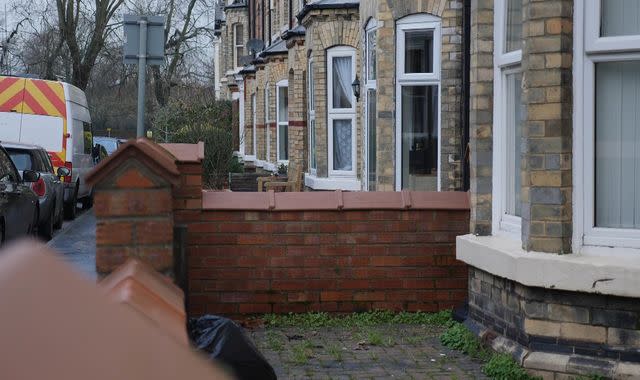Existential housing crisis at UK universities leaving students struggling, says NUS

An "existential" housing "crisis" has emerged at UK universities, leaving students struggling to find suitable accommodation.
Exclusive data for Sky News (by Higher Education platform StudentCrowd and accountants PwC), shows that while the student population has risen by 400,000 since 2019, the number of available student houses has dropped by 19,000 in the same period.
That's a loss of up to 95,000 bedrooms. Each house has multiple bedrooms.
Universities and private providers have only been able to make up less than a tenth of that, building an additional 9,000 bedrooms in purpose-built accommodation, in the last year.
"What we're seeing right now is quite an existential crisis for students," said Chloe Field at the National Union of Students.
She says housing has "always been an issue" but that the situation has been "exacerbated" in recent years.
"It's a very stressful process. There's a lot of people looking for a smaller number of houses."
It's people like Asha who are at the heart of it.
She's in her final year at York University but ended up spending much of it living on campus rather than in a student house because she said it was more affordable.
"I was looking for a house, but everything seemed quite out of my budget."
But her university experience began with a daily 30-mile commute every day from Hull to York, as there was a shortage of campus accommodation when she arrived.
"They (York University) never really explained it fully. They just said, 'I'm sorry. There's no accommodation on campus for you'."
In response, the university told Sky News that the reason for students being temporarily based in Hull was due to a specific recruitment problem after the pandemic.
It added in a statement: "We know finding the right place to live is a huge part of university life, which is why we have invested in more on-campus accommodation."
But there appears to be a combination of factors driving a shortage of student accommodation across the UK.
Read more:
Universities warn new immigration rules show Britain is 'closing ranks'
Student mental health problems almost tripled in recent years
"We need new construction," said Paul Humphreys from StudentCrowd.
"[But that's been] really challenging over the last few years, particularly driven by regulatory changes, a shortage of construction as well as an increase in the costs of borrowing which has made producing affordable accommodation a real challenge.
"In 10 years' time, there will be half the amount of landlords if someone doesn't do something."
'Horrendous' situation for landlords
Adam Bennett has been a student landlord for 25 years.
But he feels increased regulation, costs, and upcoming changes to the sector under the Renters Reform Bill could see him forced out.
"It's all the landlords are talking about," he said.
The current version of the bill going through parliament would ban private student housing landlords from offering fixed-term tenancies, while allowing those in the purpose-built sector to be exempt and continue to offer fixed-term tenancies.
Adam fears for a "horrendous" situation for landlords.
"How it's going to work is somebody is going to want to back out of the house.
"The government are going to allow it to happen. Then what's going to happen is a great deal of landlords who are feeling vulnerable will sell the houses. In York, those houses either go to overseas investment buyers, or they're sold off. That then means we're into a nasty cycle where we're short of rooms again."
In a statement, the government said: "Universities are ultimately responsible for ensuring there is enough accommodation for their students.
"However, we know a strong and fair rental market will help ease pressures which is why our Renters (Reform) Bill will deliver a fairer private rented sector. This includes greater protections for the student housing market.
"Good landlords have nothing to fear from these reforms."
What's clear is that at least for some students - these factors are all combining to make university quite a different experience from what they had in mind.
"I'm lucky that I won't be at university next year," Asha says. "But I know people who will be, and the rent has gone up even more. I don't really see how it's feasible to be a student in that environment."
And this doesn't seem to be a trend with any immediate solution, nor one that's showing any real sign of slowing down.
"I don't think it's going to be a problem that's solved in the next 12 months," said Paul from StudentCrowd.

 Yahoo News
Yahoo News 
